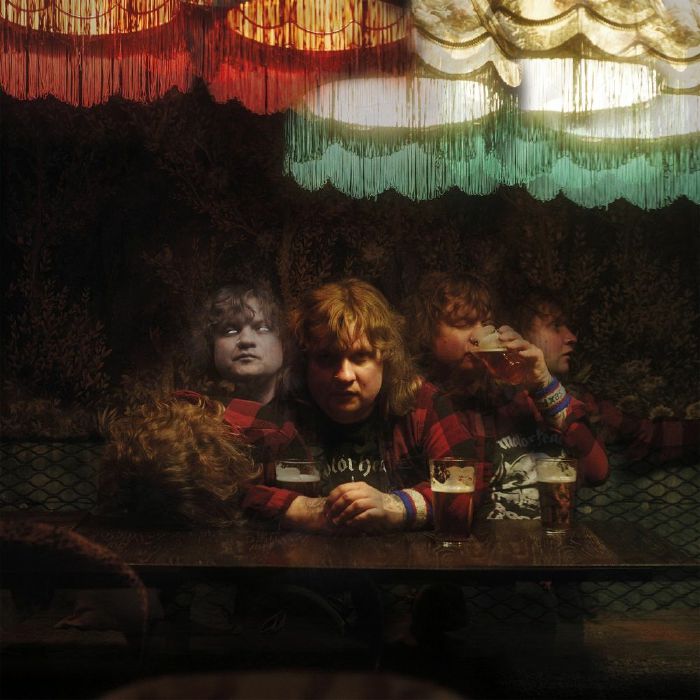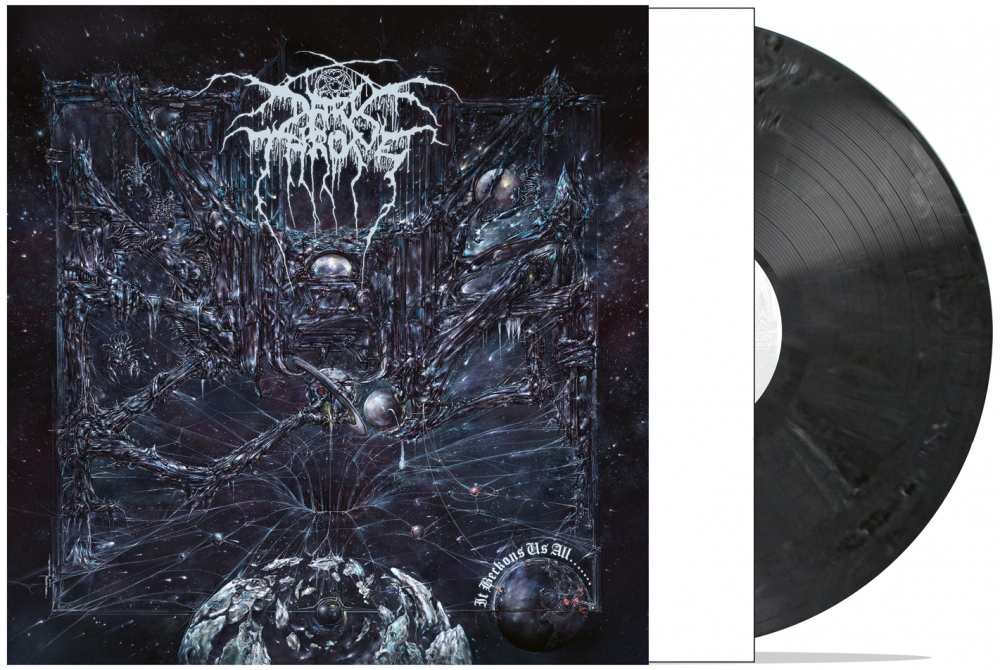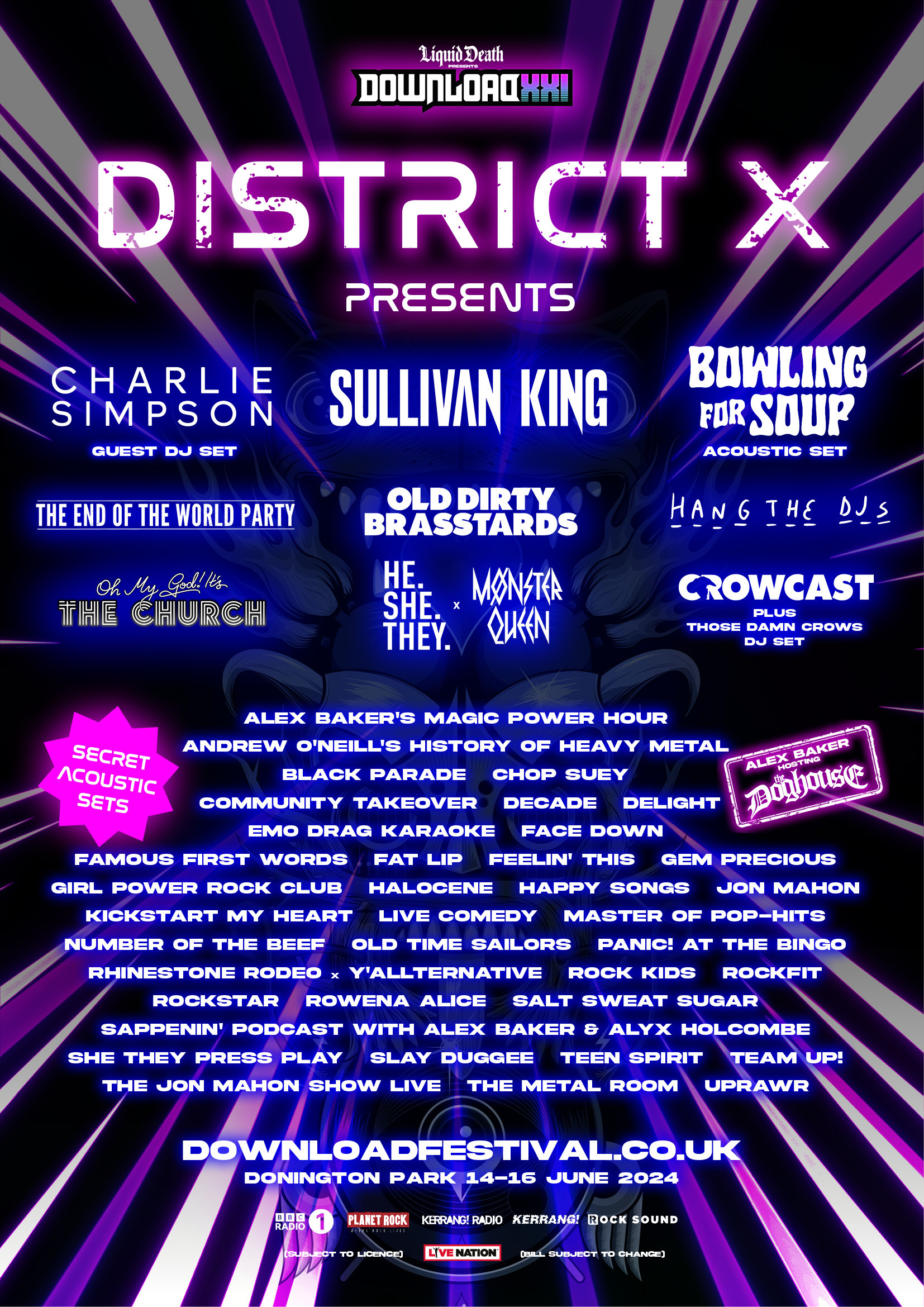With the arrival of this amazing boxset on my desk, the lurking adolescent in my brain immediately started jabbering. Covering the period between 1998 and 2003, in which Frank Black was joined by The Catholics, the set covers six albums that have, to some degree, been unfairly overlooked in Frank’s catalogue. In truth, The Catholics were the same band (featuring Scott Boutier, David McCaffrey and Lyle Workman) that recorded Frank’s glorious Cult Of Ray album, but it was only on the eponymous 1998 album that Frank gave them their own, Crazy Horse-esque, identity, underscoring the collaborative nature of a project that saw the band tracking live to two-track tape. Not always a stable entity, The Catholics saw members and guests come and go over the period. As such, each of the albums in this set has its own unique charms, even if they did not manage the same crossover success that Pixies achieved, and they are long overdue a chance to shine once more.

The Boxset
Released via Demon Records, The Complete Studio Albums is a must for Frank Black fans. Packaged in a hard slip case, with album art and track listings neatly organised on the rear (and rendered in spot varnish), it is a hefty set, containing seven platters (Black Letter Days is a double) pressed on gorgeous, crystal-clear vinyl. The pressings are of a high quality and almost entirely crackle free. The remastering, meanwhile, was sensitively handled by Phil Kinrade from the original tapes and every record sounds amazing, with Phil eschewing volume to ensure the dynamics of the original recordings shines through. In other words, these platters both look and sound great – full marks for the quality control on display here.
Inside the box, the bulk of the albums are housed in single sleeves with printed liners. The one exception is Show Me Your Tears, which comes in a gatefold sleeve. There are no extra discs or tracks, but there is a decent thirty-two-page booklet, featuring period photographs, artwork and liner notes for each album from long-time Frank Black collaborator Ben Mumphrey. It’s a nice touch, providing the context for each record. And, it must be said, that the albums flow all the better for not having any pointless extras tacked on. It’s pretty much a perfect example of how to treat a prolific artist’s back catalogue with care, and it both looks and sounds amazing.

Frank Black And the Catholics (1998)
The record that started it all, this self-titled effort is a crackling garage-rock effort, tracked live over the course of two days and delivered with the spirit of those old Neil Young LPs, all gutsy guitar and pummelling rhythms. There’s a real groove to a number of the tracks here, and if it has a weakness, it’s only in comparison to the relentlessly high standard found elsewhere in Frank’s catalogue, because it’s a really, really damn good album.
Right from the start, Frank is on a roll, his quirky sense of humour and remarkable gift for catchy pop melodies very much to the fore. As befits an album tracked live, All My Ghosts opens with snippets of studio chatter before the band plough into the track’s gritty, alt-pop melody. It’s a cracking start, with a punky attitude and moments of sheer, singalong glory found in David McCaffrey’s backing vocals. Throw in some delightfully skronky lead from Lyle Workman, and you have a winner on your hands. Later, the album’s highlight can be found in I Gotta Move, a brilliantly deranged pop song, which never fails to raise a smile, thanks to Frank’s mad babbling.
It’s the second side where things really start to get strange. While King & Queen of Siam remains in familiar territory, Six-Sixty-Six is ramshackle country-alt, delivered with a wry smile and possessed of a swagger that is entirely irresistible. Then, lest we get too comfortable, Frank unleashes one of his heaviest riffs ever on the mid-tempo grind of Solid Gold. How are these tracks not still revered as classics? They’re such a great example of Frank’s schizophrenic musical spirit, and the band simply rock here., as they also do on Suffering, which has a bug-eyed punk spirit that reminds us of the intensity Frank can wield. The album closes on a whimsical note – the countrified The Man Who Was Too Loud, which tells a story of a guitar player who “cared about the old people’s and little children’s ears”. Musically, it points to where The Catholics would go next, while lyrically it’s something of a delight and it ends this brilliant album leaving the audience very much wanting more. 9/10

Pistolero (1999)
And they wouldn’t have long to wait. Recorded just a year later, Pistolero finds Frank Black and The Catholics in transition. While the tone and delivery are not dissimilar to their self-titled effort, the country elements that dominate from Dog in The Sand onwards start to appear, resulting a in sound not dissimilar to that of Head Carrier, albeit less frenetic.
Opening with the ramshackle Bad Harmony, the album has a nicely gritty vibe, which perfectly follows on from its forebear. It’s followed by I Switched You, which has a strong undercurrent of Pixies, not least thanks to Frank’s staccato delivery and the scattershot guitar figures that drift in and out of the mix, always held in check by David McCaffrey’s creeping bass. An energetic rocker, it really cooks as it flies towards its conclusion, and it’s an early album highlight. Next up, Western Star provides a moment of calm before the country rumble of Tiny Heart canters over the horizon. The final track of the side, Smoke Up, sees the band play it straight, but it’s got a cool groove.
Opening side two, Billy Radcliffe is a taut little rocker, perfect to get the album going, but it’s soon eclipsed bythe slow-paced So Hard to Make Things Out, which continues to showcase Rich’s astringent lead work, and his approach does much to enhance the Crazy Horse sensibilities hinted at on the first album. That Young-esque story-telling instinct carries over into 85 Weeks, which is framed as a campfire tale and filled with great guitar work. The unexpectedly nostalgic I Want Rock & Roll is a love letter to the genre that pays off, in typical Frank Black style with the line “If you’re going to San Francisco just remember it is all disco”. Bringing it all to an end, So. Bay opens on a dusty, rather beautiful note, the music haunting the highways and byways of Americana, only for the band to unleash one last bruising riff, taking things in a wholly unexpected direction and providing the album with a brilliant finale in the process. 9/10

Dog In the Sand (2001)
Arriving after a two-year break, Dog in The Sand added Frank’s former producer, Eric Drew Feldman to the line-up, and one track even featured a guest slot from Joey Santiago. Dave Philips, meanwhile, may be listed as an ancillary of the member of the band, but he proved so invaluable to the process that he played on every song. The album sees Frank and his Catholics drifting into calmer territory,
Opening with the misleadingly titled and lengthy Blast Off, Frank moves from music-hall lament (“I’m gonna make my mark, maybe in show biz”) to classic rock ‘n’ roll, complete with Jerry Lee Lewis piano and taut groove. It’s a sweet opener and, lest things get too conventional, there’s some brilliant underwater guitarwork washing through the mix. The seriously chilled I’ve Seen Your Picture benefits greatly from Eric Drew Feldman’s somnolent electric piano, while Frank does his best Jim Morrison impression. It’s a very different vibe to anything previously attempted by The Catholics, and it serves as an album highlight. Next, the campfire tale of St. Francis Dam Disaster benefits from Banjo and Dobro guitar, and once again there’s a feeling that Frank took great delight in expanding his band’s sonic palette on this album. Robert Onion is a brilliantly addictive track, so quirky you can feel bands like …And you will know us by the trail of dead taking notice, as Frank flirts with progressive elements as if it’s the most natural thing in the world. Later, the side concludes with the shuffling Bullet, a similarly lovely country track with a Pixies undercurrent that vaguely recalls a slow-motion Nimrod’s Son.
Side two kicks off with The Swimmer, a slow-paced track filled with drama. It perfectly sets the tone for a second half that includes the gritty garage rock of Hermaphroditus Is My Name and the gorgeous I’ll Be Blue. The brilliantly whimsical Llano Del Rio may upstage the Ben Folds’ rock ‘n’ roll of If It takes All Night, but it leaves the closing title track as a slow burning gem that leaves you wishing the album (arguably the best of the six) would run and run… 9.5/10

Black Letter Days (2002)
With Dave Philips now officially listed as a member, Black Letter Days sees The Catholics remaining largely stable for a monstrous, eighteen-song double album, which was (unbelievably) released in the same year as Devil’s Workshop. Of course, Frank was gloriously oblique as to whether the albums were companion pieces, pointing out that they were made with two different line-ups and a different producer.
Bookending the album with a ramshackle cover of Tom Waits’ The Black Rider, Black Letter Days takes us on a journey covering four sides of vinyl – sixteen new tracks in total – and it all kicks off properly with the appropriately sun-kissed California Bound, all slide guitar, heavy piano and pop melodies. Eric Feldman’s keys lead the way on the mournful Chip Away Boy, although it’s soon displaced by a country riff and a shuffling beat. Nevertheless, the line “I used to have some fun, me and everyone, now I’m just employed” feels pained, making you wonder at the state of Frank’s relationship with the industry at that point. As does the stripped-down Cold Heart of Stone, which has a desolate feel, while the title track has an underlying darkness that speaks to the apathy generated by seeing every day as a grind, although eccentric musical flashes spark across the track like lightning.
Second side opener Valentine and Garuda suffers from sitting in the mid-tempo rut, but while How You Went So Far slows the pace further, it’s got a late-night feel that proves much more effective as a gnarled blues number. It exorcises some of the darkness and the first LP ends with 1826, a stabbing, alt-rock number that loops its central riff. With lead guitar slashing its surface, it’s a compelling number that slowly ramps up the sonic violence, despite the monotone vocal that sees its narrator questioning (and never revealing) their fate.
Opening the second LP, the acoustic track The Farewell Bend is a pure country ditty that recalls Beck’s lo-fi material released via C/Z and K. Similarly, Southbound Bevy could be a Rolling Stones’ song if it weren’t for Frank’s motormouthed presence, while I Will Run After You sees the band emphasise the sweetness of its message by playing it straight. The acoustic True Blue is stripped to the bone, before Jane the Queen of Love builds from its weighty opening to bring the side to a powerful conclusion.
The final side of this mammoth album kicks off with the faster paced Jet Black River, a country-fried metaphor for touring, which is neatly followed by the snippy 21 Reasons, a country rock piece with twitchy keys and a toe-tapping rhythm that sees the album accelerating to its end. Acoustic, but similarly pacey, Whispering Weeds feels like a long-lost Dylan track, and then the album ends where it began, with Tom Waits’ The Black Rider, marking the end of one of Frank Black’s most emotional albums to date. Unlike the other albums here, it could arguably have used a little trimming, but there’s still much to enjoy. 7.5/10

Devil’s Workshop (2002)
Recorded the same year as Black Letter Days, Devil’s Workshop sees Frank losing Eric Drew Feldman and Rich Gilbert from the line-up but gaining support from one Joey Santiago. A very different album to Black Letter Days, Devil’s Workshop is far shorter, and with a punky thrust that sees Frank and his Catholics edging back towards territory last inhabited on the self-titled album.
It kicks off with Velvety, a revived Pixies B Side named for The Velvet Underground and given lyrics for the first time here. Out of State continues in the same vein, with its skewed lead guitar and quirky shifts, although hints of Neil Young can be found in the extended lead that closes the piece. His Kingly Cave opens with howling feedback, before a descending riff guides us into the track proper. With Frank employing a strangely calming vocal that is part sung, part spoken word, it’s got a Lou Reed vibe to it, the acoustic guitar adding a touch of sunshine to it – a good time vibe that rolls over into the whimsical San Antonio TX, as close a track to the Beatles as Frank ever got.
Side two opens with the slide-soaked Modern Age, which recalls Young’s work with The International Harvesters, while the rambunctious Are You Headed My Way is an unexpected rock ‘n’ roll throwback. Then, just as you think the album is out of surprises, the slinky Heloise ambles into view, complete with falsetto vocals and scratchy guitar figures. It’s a track you need only hear once, and you’ll find yourself returning to it over and over again – a trick Frank has pulled on many occasions throughout his career. The Scene may be rather Pixies-lite (and arguably the weakest track here) but the gritty saloon-bar rock of Whiskey In Your Shoes gets things back on track and it leaves the band to see the album out with the quite brilliant Fields Of Marigold, which, with its awkward timing and grungy riff carves out a Bob Dylan atmosphere for an electrifying finale. 8/10

Show Me Your Tears (2003)
The final album from The Catholics, within months of its release Frank was back fronting the Pixies, and The Catholics were no more. Citing the stresses of being in a band successful enough to tour endlessly, but not successful enough to have the support network necessary to do it in perpetuity, Frank suggested that it was also his penchant for tracking live on two-track tape, which was behind the break-up. Whatever the reason, it’s a shame, because Show Me Your Tears is another exceptionally strong effort from The Catholics, yet the absence of a supporting tour and the furore that greeted the return of The Pixies was enough to overshadow it in the minds of all but the most faithful.
The album starts with the creeping bass and surf guitar tones of Nadine, a slow burner, with aspects of Tom Waits and Nick Cave shot through its DNA. In contrast, the slinky blues of Everything Is New is a lovely track, with slide and piano vying for the attention, as Frank paints his lyrical pictures in the sky. The album continues its eclectic explorations with the country pop of My Favourite Kiss, a warm acoustic number with elements of Urge Overkill on display. That Nick Cave vibe returns on New House of The Pope, which evokes the Wild West, all dusty streets and furnace-hot saloon bars drenched in the stench of old sweat and spilled liquor. It leaves the Stones-y vibe of Horrible Day to see the side out on a country trip.
The second side kicks into gear with the gutsy Massif Central, which sounds like The Velvet Underground on steroids. In contrast, the schizophrenic country rock of When Will Happiness Find Me Again veers wildly from broken-hearted ballad to blazing guitar and back, making the country pop of Goodbye Lorraine feel all the more incongruous. Fortunately, the dark hearted This Old Heartache is waiting in the wings with a touch of Nick Cave darkness and some truly inspired lead work. The album races towards its conclusion with the frantic rock of The Snake, an acoustic ditty entitled Coastline and the closing number, Manitoba, which (with the inevitable power of hindsight) feels like a farewell to both the album and to the Catholics – a task it performs with dignity and grace. 9/10
Conclusion
I don’t know how many times I played these albums in trying to complete this review, but I can say it’s not enough and they’ll be played many times still. There’s so much variety here and it’s hard to believe that they’re not revered as classics. With the quality relatively consistent across the releases, it’s likely to be a matter of taste as to which is the best of the bunch, although for my money it’s Dog in The Sand. Nevertheless, while for Frank Black fans, purchasing this set is pretty much a foregone conclusion; it’s really Pixies fans, who somehow missed this fantastic period in Frank’s career, that need this set. Beautifully presented, with pristine pressings and reference quality mastering, it’s an absolute treasure trove and a necessary reminder, via an unsung period in his career, that Frank Black is one of the most blazingly original songwriters of his generation. 10/10










Leave a Reply